
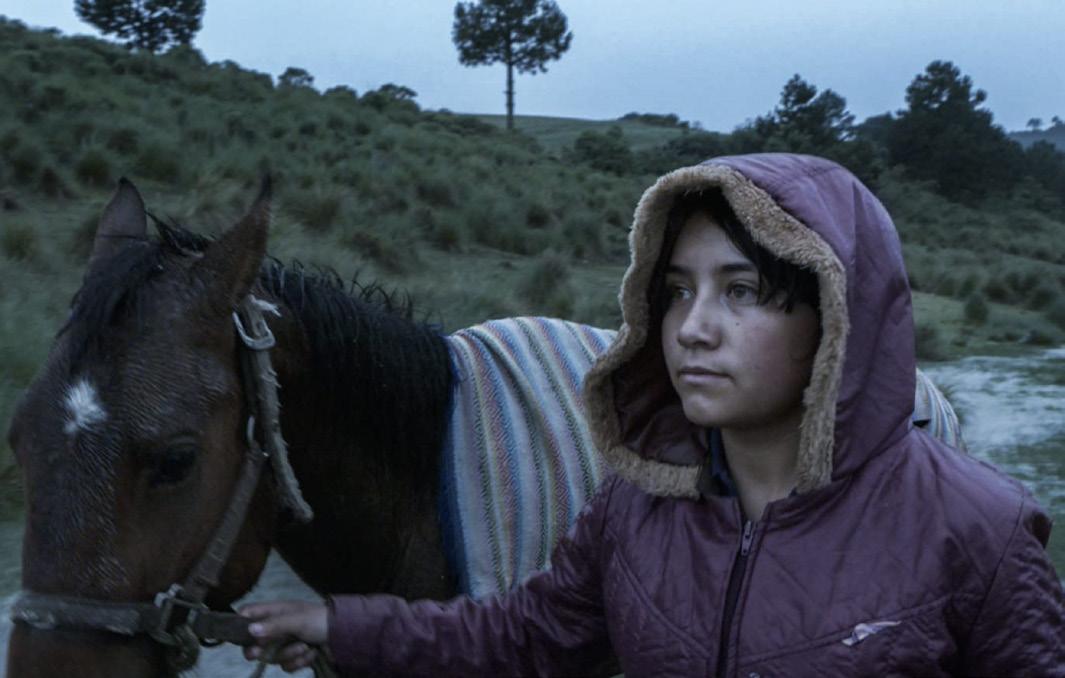
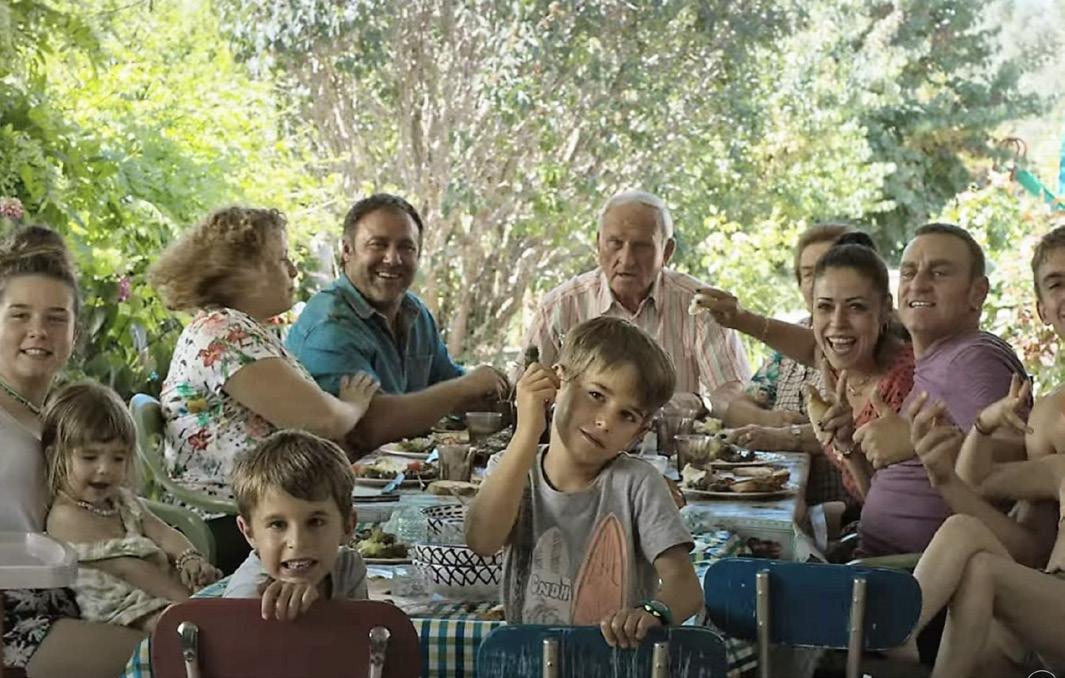
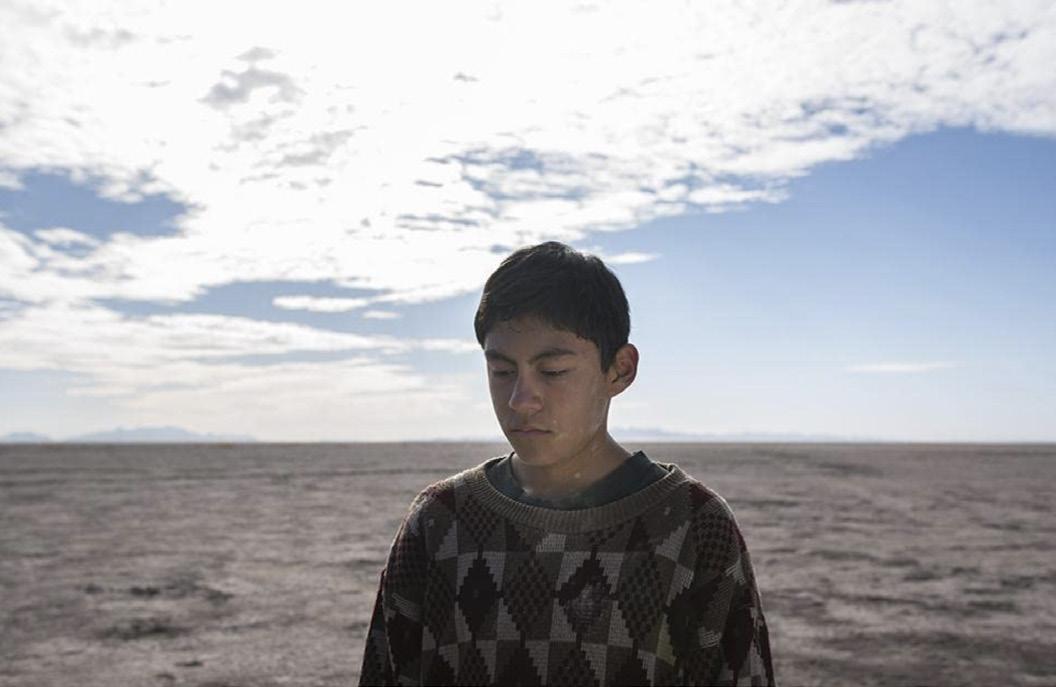
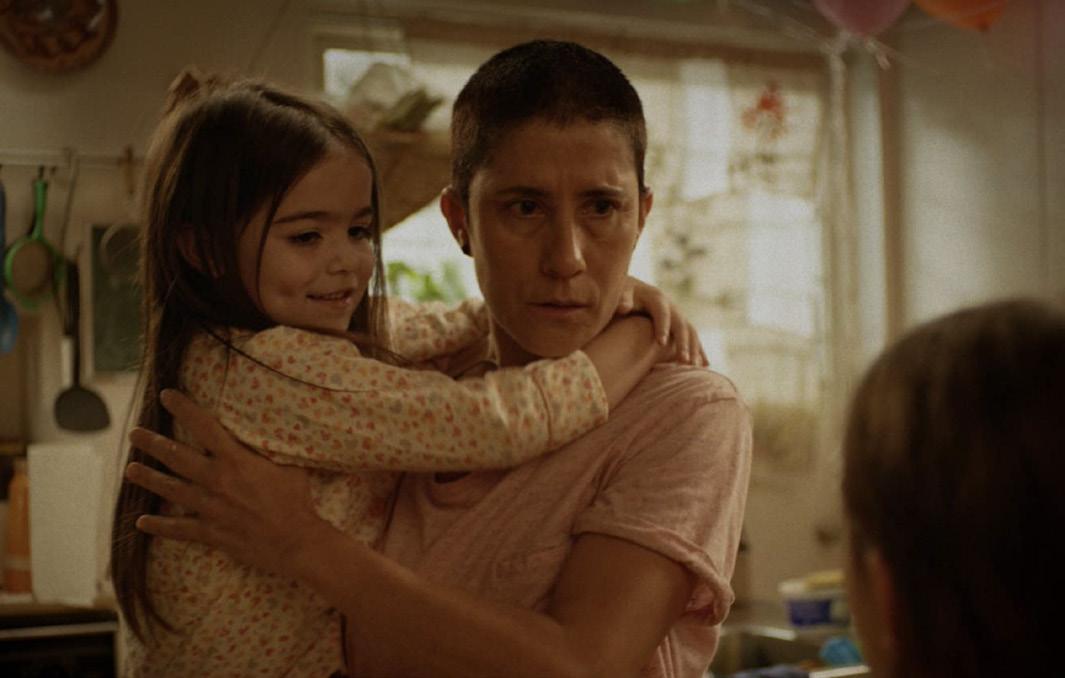
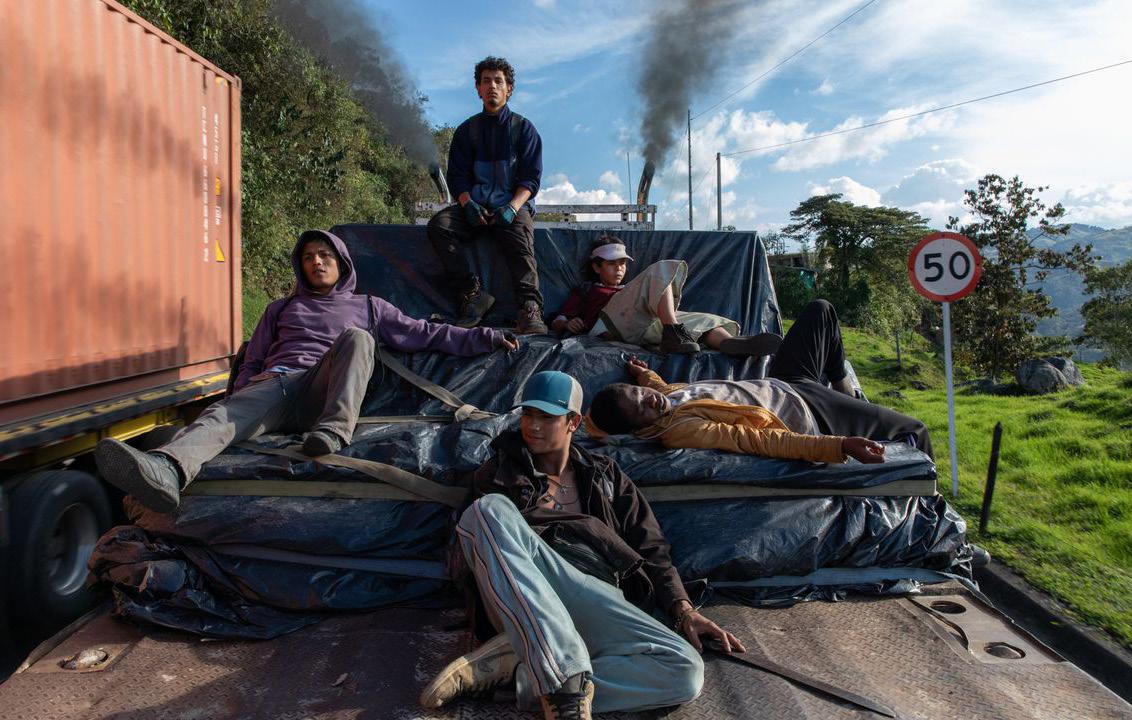
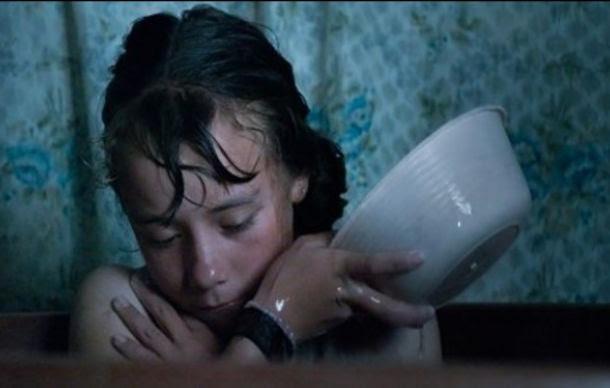








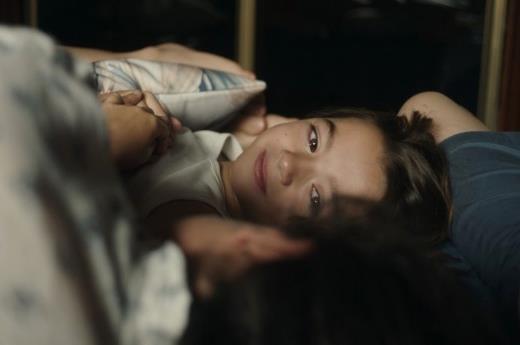
VERDICT: Extraordinary for its sensitivity and perception, Estibollz Urresolo Sologuren’s story of an 8-year-old girl’s growing discomfort with being perceived as a boy is a landmark in the filmic discussion of gender, sexuality and identity.

Deborah Young, February 22, 2023
A child’s view of her own gender comes increasingly in conflict with the way her family sees her, until things boil over one summer in the glorious Basque countryside in Spain. Making her feature film debut after several shorts and a long documentary, Estibollz Urresolo Sologuren chooses a measured, naturalistic style to explore the pressing need of eight-year-old Cocó (the remarkable Sofia Otero) to make the people in her world recognize her as the girl she feels herself to be. Full Review
When Spanish actress Sofía Otero received the best performance award at Berlin this year for her work on 20,000 Species of Bees, with the elegance of every actress and a few tears, she thanked the director, the crew, her family, and the jury. The usual. What was unexpected is that Sofia is 8 years old.


Children and adolescents have been everywhere in Latin American and Spanish cinema during the last year. They do not
have the usual role of “fillers;” they are full protagonists who play an important role in their communities. All the films highlighted in this very first CineVerdict issue of the TFV Critics Choice were shot in their countries of origin, in rural or urban areas. But the issues they deal with, without exception, are universal, which has significantly helped their distribution on the festival circuit.
(Continues page 2)
and Sarahi impress us with their resilience and sense of belonging to their rural community.
The presence of children in these films offers a refreshingly new angle with which to talk about society. An approach not necessarily sentimental, as demonstrated by Carla Simón in the sober Alcarràs or Lorenzo Vigas in the painful The Box, but humane. The problems facing minors in these movies seem bigger than them; bigger even than an adult, like the loss of their land and way of life in Alcarràs or the need for a masculine presence that appears in the form of ashes in The Box.
In 20,000 Species of Bees, director Estibollz Urresolo talks about gender without the harshness that usually accompanies the topic. Aitor/Cocó, a boy who wants to be seen as a girl, does not suffer attacks or have doubts about her identity; her family is forced to replace with love what they fail to understand.
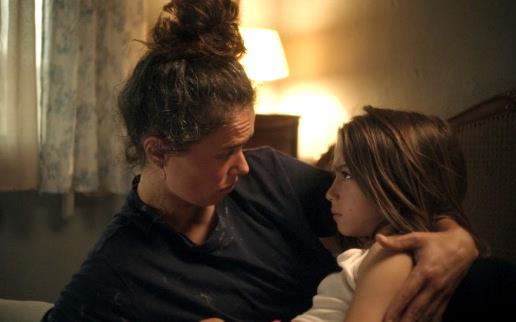
In the documentary The Echo, winner of the Encounters section of the Berlin 2023, harsh conditions are observed with great sensitivity and respect by director Tatiana Huezo. Respect but not distance, because the young women Montse, Luz Ma,

In The Box, the father goes away long before his death, an absence common to many migrant families. Jasmine, 11, suffers from this abandonment in the animated documentary My Home Is Elsewhere, while she waits in Miami for news from her undocumented father. The lack of a father is equally traumatic for Sol, an 8-year-old in Totem directed by Lila Avilés. Her father is dying of cancer and she feels as helpless as the other children, even though her financial position is better.
In some cases, kids find companionship in gangs, urban tribes that provide protection for their members. This is the case in The Kings of the World, a mix of coming-of-age and road movie, in which a group of Colombian boys search for the land promised by the government.
The Hole in the Fence borders on sensationalism with its portrayal of violence and abuse at a fictional far-right summer camp. But bullying is common all over the world and that makes the film relevant.
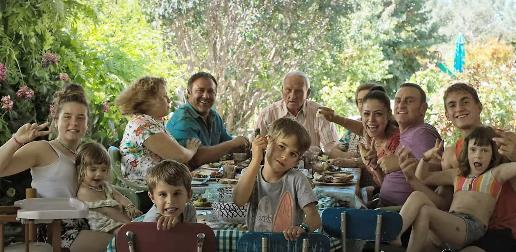
All these films vaunt excellent young actors who are in control of their performances, able to convince and move us. Let’s hope the region's film industry will develop to provide work for this promising generation of newcomers.
Lucy Virgen: La historia sobre un niño de 8 años que siente una creciente desesperación de ser percibido como masculino es extraordinaria por su sensibilidad y percepción. Será un parámetro en la discusión fílmica sobre género, sexualidad e identidad.

Deborah Young, February 22, 2023
La visión de un niño sobre su propio género entra cada vez más en conflicto con la forma en que su familia lo ve, hasta que las cosas llegan a la ebullición durante un verano en la gloriosa campiña vasca de España. Estibollz Urresolo Sologuren, que debuta con el largometraje de ficción tras varios cortometrajes y un largo documental, elige un estilo mesurado y naturalista para explorar la apremiante necesidad de Cocó (la notable Sofía Otero), de ocho años, de hacer que la gente de su mundo la reconozca como la niña que ella siente que es.
Alejándose del dramatismo exagerado y concentrando la mayoría de las escenas en el niño Revision Completa
La española Sofía Otero recibió el premio al mejor intérprete en el Festival de Berlín 2023 por su trabajo en 20,000 especies de abejas. Con la apostura de toda actriz y algunas lágrimas, agradeció a la directora, al equipo, a su familia y al jurado. Lo común. Lo inesperado es que Sofía tiene 8 años.
Es notable la presencia de niños y adolescentes en el cine de América Latina y España en el último año. No tienen el usual papel de comparsas, son protagonistas y parte importante de sus comunidades. Todas se filmaron en sus países de origen, en zonas rurales o urbanas, pero sin excepción los temas son universales, lo que sin duda ha ayudado a la distribución en el circuito de festivales.
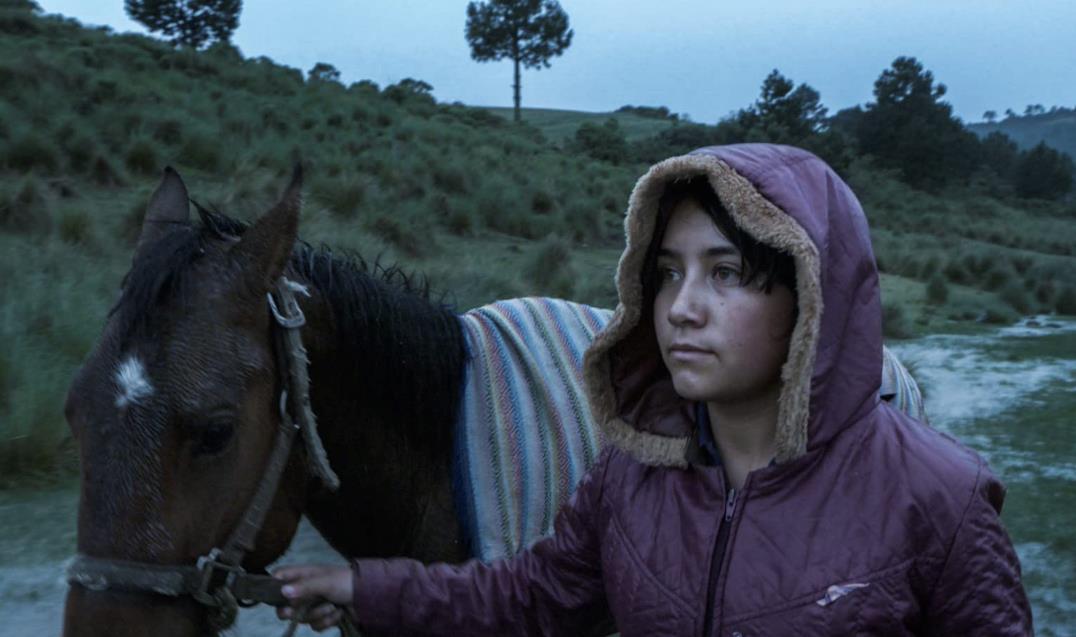
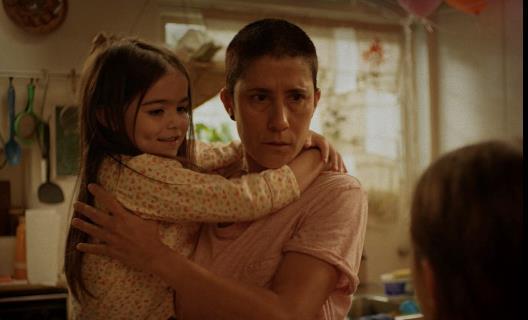
En 20,000 especies de abejas la directora Estibollz Urresolo habla de género sin la aspereza que suele acompañar el tema. Aitor/Cocó, un niño que desea ser visto como niña no sufre agresiones ni tiene dudas sobre su identidad; su familia se ve obligada a sustituir con amor lo que le falta entender.
cáncer y ella se siente tan desvalida como los otros niños, aunque su posición económica sea mejor.
La presencia de los niños es aprovechada para hablar de la sociedad desde un ángulo refrescante. No necesariamente sentimental, como lo demuestra Carla Simón en la sobria Alcarràs o Lorenzo Vigas en la dolorosa La caja, pero si es un tratamiento más humano. Los problemas que enfrentan los menores de estas películas parecen mayores que ellos; lo son hasta para un adulto: la pérdida de la tierra y su modo de vida en Alcarràs o la necesidad de una presencia masculina que es recibida en cenizas en La caja.
En El eco -documental ganador de la sección Encuentros del Festival de Berlín 2023, unas duras condiciones son observadas con mucha sensibilidad y respeto por la directora Tatiana Huezo. Respeto pero no distancia, porque las jóvenes Montse, Luz Ma y Sarahi nos impactan por su resilencia y sentido de pertenencia a su comunidad rural.
En La caja, el padre desaparece mucho antes de morir, una ausencia común a muchas familias de migrantes; la sufre Jasmine, de 11 años en el documental animado Mi casa está en otra parte. Jasmine espera en Miami las noticias de su padre indocumentado. La falta del padre es igualmente traumática para Sol en Tótem dirigida por Lila Avilés. Su padre de está muriendo de
En algunos casos los niños y jóvenes encuentran compañía en las pandillas, que se constituyen en tribus urbanas que dan protección a sus participantes. Es el caso de Los reyes del mundo, mezcla de coming of age y road movie, en el que un grupo de chicos buscan la tierra prometida por el gobierno colombiano.
No todas las películas con niños son sobresalientes. El hoyo en la cerca, bordea el amarillismo con su retrato de la violencia y abuso en un ficticio campamento de verano de ultraderecha. Pero los abusos por bullying son comunes en todo el mundo y eso hace relevante la película.
Es común a todas las películas el excelente nivel de los jóvenes intérpretes, están en control de sus actuaciones, convencen y emocionan. Solo esperamos que los cines de la región se desarrollen para dar trabajo a esta prometedora generación de actores.
Lucy Virgen
VERDICT: Mexican-Salvadoran director Tatiana Huezo returns to her first cinematographic love in this moving and beautifully photographed documentary about teenagers in a Puebla community.
Lucy Virgen, February 17, 2023
Like producer-director Tatiana Huezo’s previous film Prayers for the Stolen, The Echo (El eco) is the story of three teenagers. Here, she observes the life of the El Eco community without apparent intervention, then presents it to us with meticulous editing. As in The Tiniest Place, this is a small rural community. But unlike any of the director’s previous works, there is no physical violence or even talk about it. Huezo seems to have grown tired of such harshness and she wants to explore a more nonviolent life. Fortunately, both in war and in peace, she has an excellent eye for portraying everyday life and the sensibility to get up close, without making regular people look like actors.
In the first scene of the documentary, we see how a young woman, Luz Ma, recovers a lost sheep from of a stream. In the next one, another teenager, Montse, helps her mother bathe her grandmother. The mother tells the girl that this will be her duty, and she complies with care and devotion. El Eco is only 400 kilometers away from Mexico City, but it could be on another continent because of the way life is lived there. Its inhabitants have no electricity or running water; they eke out a living on agriculture, sheep herding, and forestry.
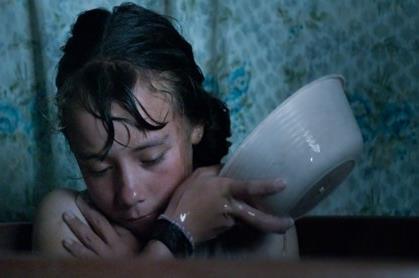
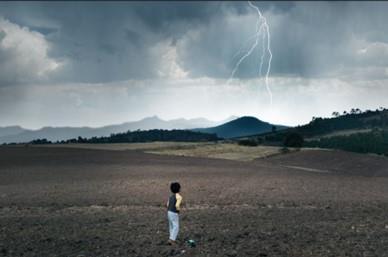
Do not feel sorry for these kids who are the embodiment of resilience itself. Besides helping with the housework, they labor in the fields, ride bareback, and take care of the animals on their property. In addition to that, they go to school where they study and serve as tutors for the youngest students. Full Review
: La directora mexicana-salvadoreña Tatiana Huezo regresa a su primer amor cinematográfico con este documental conmovedor y bellamente fotografiado sobre adolescentes en una comunidad de Puebla, participante en la sección Encuentros en el Festival de Berlin.
Lucy Virgen, February 17, 2023

La productora, directora y co-editora Tatiana Huezo observa sin aparente intervención la vida de la comunidad El Eco; después nos la presenta con una edición meticulosa . El eco es -al igual que su película anterior Noche de Fuego, la historia de tres adolescentes; como en El lugar más pequeño es una pequeña comunidad rural: Pero a diferencia de cualquier obra de la directora no hay violencia física ni se habla de ella. Huezo parece haberse cansado de tanta dureza y quiere explorar una vida más pacífica. Por fortuna, en la guerra y en la paz , sigue teniendo una excelente mirada para retratar la vida cotidiana y la sensibilidad para acercarse sin que las personas parezcan actores.
En la primera escena del documental vemos como una jovencita Luz Ma sacar a una oveja perdida de un arroyo. En la siguiente otra adolescente Montse ayuda a su madre a bañar a su abuela; la madre avisa a la chica que esa será su obligación, ella lo cumple con esmero y devoción. El eco está a sólo 400 kilómetros de la ciudad de México, pero podría estar en otro continente por su forma de vida. Sus habitantes no tienen electricidad ni agua corriente; viven de la agricultura, el pastoreo de borregos y la silvicultura.
Pero no tenga lástima de estos chicos que son la resilencia misma. Además de ayudar en las labores domésticas, trabajan en el campo, montan caballos a pelo, cuidan a los animales de su propiedad. Revision Completa
VERDICT: Lorenzo Vigas continues his critical take on father figures and the broader implications of paternal absence in this subtle coming-of-age story anchored by the exceptional presence of its young lead.
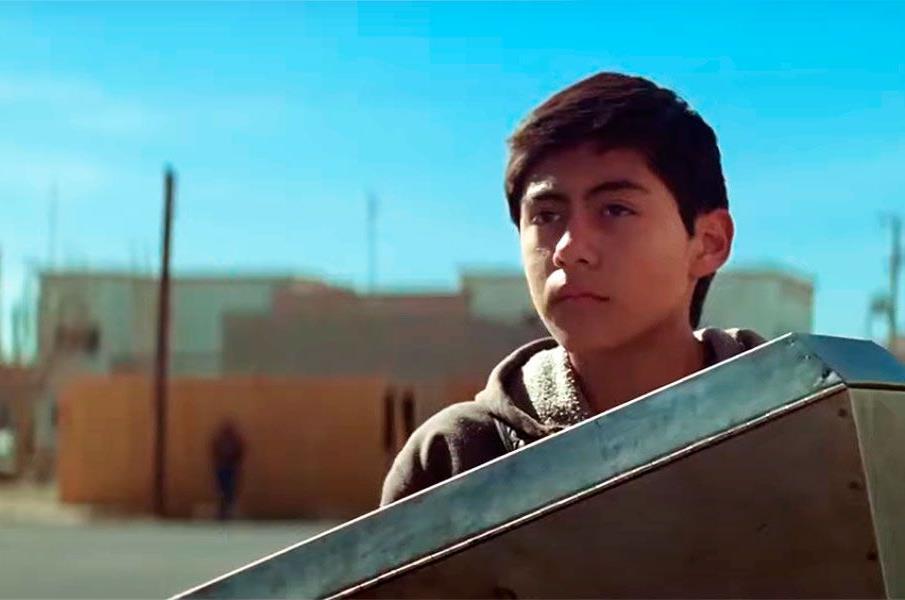
Jay Weissberg, December 4, 2022
The titular box that young Mexican teen Hatzin (newcomer Hatzin Navarrete) picks up containing his father’s remains may look like a simple mini-casket, but the emotional baggage that goes with it is far weightier than what’s inside. In the third and final installment of his trilogy ruminating on the concept of the father-figure, Lorenzo Vigas goes beyond the psychosexual longing of his Golden Lion winner From Afar to take a broader view of paternity, focused on Hatzin but designed to resonate throughout Central and South America where a crisis of absenteeism and father-dictators provoke multiple reckonings. Gratifyingly nuanced and anchored by Navarrete’s remarkable presence, The Box will find welcoming couriers to take it beyond its double berths in Venice and Toronto.
Given the intimate nature of the storyline those broader issues aren’t directly apparent, but Vigas keeps expanding beyond the protagonists’ immediate environs with majestic longshots of the barren Chihuahua plains, forcing viewers to consider how this specific coming-of-age/lost father narrative fits within a larger nationwide context in which environment is just one of many factors. What begins as a tale of Hatzin latching onto a man he believes is his father soon encompasses an entire discourse about deceit, violence and the ways a society becomes deformed when paternal figures are either absent or incapable of nurturing.
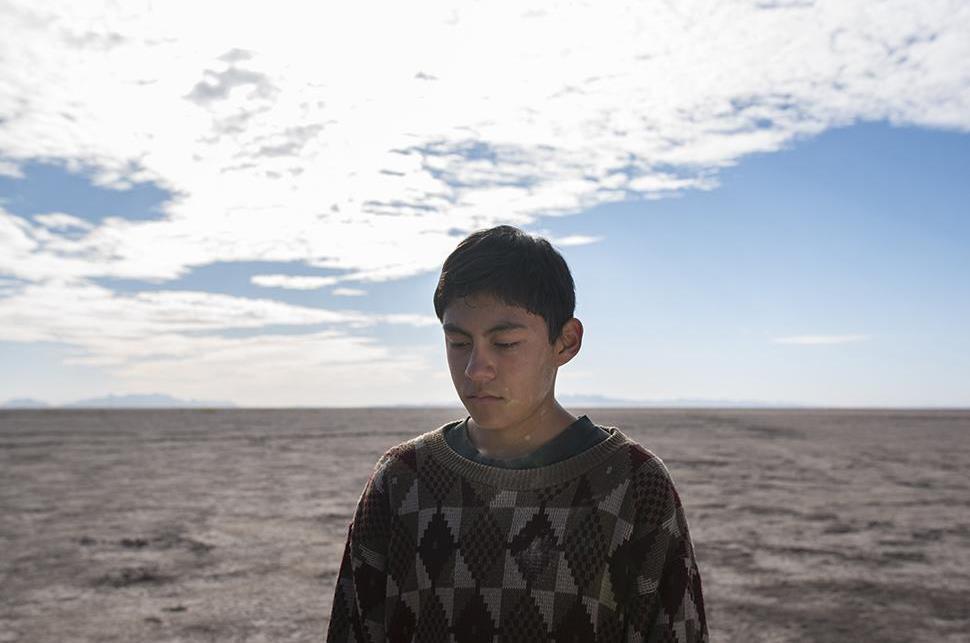
Hatzin is heard before he’s seen, repeatedly kicking the lower wall of the train toilet as he journeys alone Full Review
: Lorenzo Vigas continúa con su visión crítica de las figuras paternas y las implicaciones más amplias de la ausencia paterna en esta sutil historia de madurez anclada en la excepcional presencia de su joven protagonista.
Jay Weissberg, Decebmer 4, 2022 (traducido por Patricia Boero)
La caja titular que recoge Hatzin, el joven adolescente mexicano (el debutante Hatzin Navarrete), que contiene los restos de su padre, puede parecer un simple mini-ataúd, pero la carga emocional que la acompaña es mucho más pesada que lo que hay dentro. En la tercera y última entrega de su trilogía sobre el concepto de la figura paterna, Lorenzo Vigas va más allá del anhelo psicosexual de su ganadora del León de Oro en Venecia, Desde allá, para adoptar una visión más amplia de la paternidad, centrada en Hatzin, pero diseñada para resonar en toda América Central y del Sur, donde la crisis del ausentismo y los padres-dictadores provocan múltiples consecuencias. Gratificantemente matizada y anclada por la notable presencia de Navarrete, La caja encontrará festivales y público que la lleven más allá de sus exhibiciones en Venecia y Toronto. Representa a Venezuela para el premio del Oscar internacional 2023.
Dada la naturaleza íntima de la historia, esos temas más amplios no son directamente evidentes, pero Vigas sigue expandiendo más allá de los entornos inmediatos de los protagonistas con majestuosos planos largos de las áridas llanuras de Chihuahua, obligando a los espectadores a considerar cómo esta narrativa específica sobre la llegada de un padre perdido encaja en un contexto nacional más amplio en el que el entorno es sólo uno de los muchos factores. Lo que comienza como una historia de Hatzin aferrándose a un hombre Revision Completa

VERDICT: Mexican director Lila Avilés shows sensibility and a strong hand in 'Totem', her second feature. Lucy Virgen, February 20, 2023
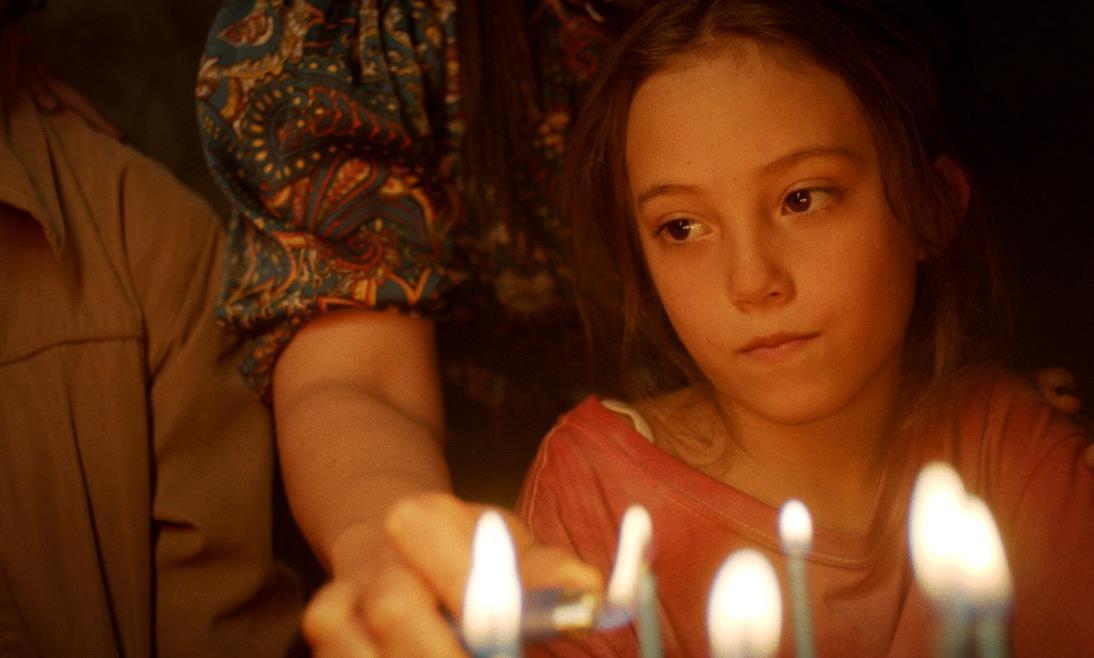
Lila Avilés’ directing debut made a lot of noise on the international scene in 2018. The Chambermaid, her first feature, won awards from
Havana to Minsk. This raised a lot of expectations for the screening of Totem, her second film, which bowed as part
of Berlin competition. Expectations were rewarded with an intimate film and impeccable direction.
Totem follows an afternoon in the life of Sol, a seven-year-old girl. She spends the day at her grandfather’s house while her mother works; meanwhile, her aunts, uncles and grandfather prepare a birthday party for her sick father.
It soon becomes clear that something serious is going on in the family, just from the way the Sol is treated. The relatives are not just kind and loving; they are obsequious and at times overwhelming. But as is often the case with adults all over the world, after a while they tend to ignore children of an age where they don’t need constant attention and their help is not required.
Full Review

The Film Verdict (TFV) has announced the arrival of a new reviewer who will be assuming the position of Chief U.S. Film Critic: Alonso Duralde. He will be covering the most widely-released Hollywood productions, beginning next week with Disney’s Guardians of the Galaxy Vol. 3.
Duralde will work with editor and chief critic Deborah Young and TFV’s publisher and founder Eric Mika to expand TFV’s reviewing presence in North America.
Duralde is the former Film Reviews Editor for TheWrap and co-host of many podcasts, including Linoleum Knife, Maximum Film!, Breakfast All Day and Deck the Hallmark. He has appeared on TCM and was a regular contributor to FilmStruck. He is the author of two books, Have Yourself a Movie Little
Christmas (Limelight Editions) and 101 Must-See Movies for Gay Men (Advocate Books), and the coauthor of I’ll Be Home for Christmas Movies (Running Press). His book on the history of LGBTQ+ Hollywood will be published by TCM/Running Press in 2024.
The Film Verdict is known as the premier platform for international
and festival film reviews, written by authoritative critics from around the world. “The Film Verdict has never ignored American films,” said Deborah Young, “but it has always been our first priority to foreground international film reviews, which were getting overlooked in business publications.” Full Announcement
: La mexicana Lila Avilés dirige con sensibilidad y de forma impecable Tótem, su segunda película, en competencia en Berlín. Lucy Virgen, February 20, 2023

Lila Avilés debutó en el panorama internacional en 2018 con inusitada fuerza. La camarista, su
ópera prima ganó premios desde La Habana hasta Minsk. Lo cual causó muchas expectativas por la
presentación de Tótem, su segunda película en competencia en el Festival de Berlín. Esperanzas compensadas con una película íntima con una dirección impecable.
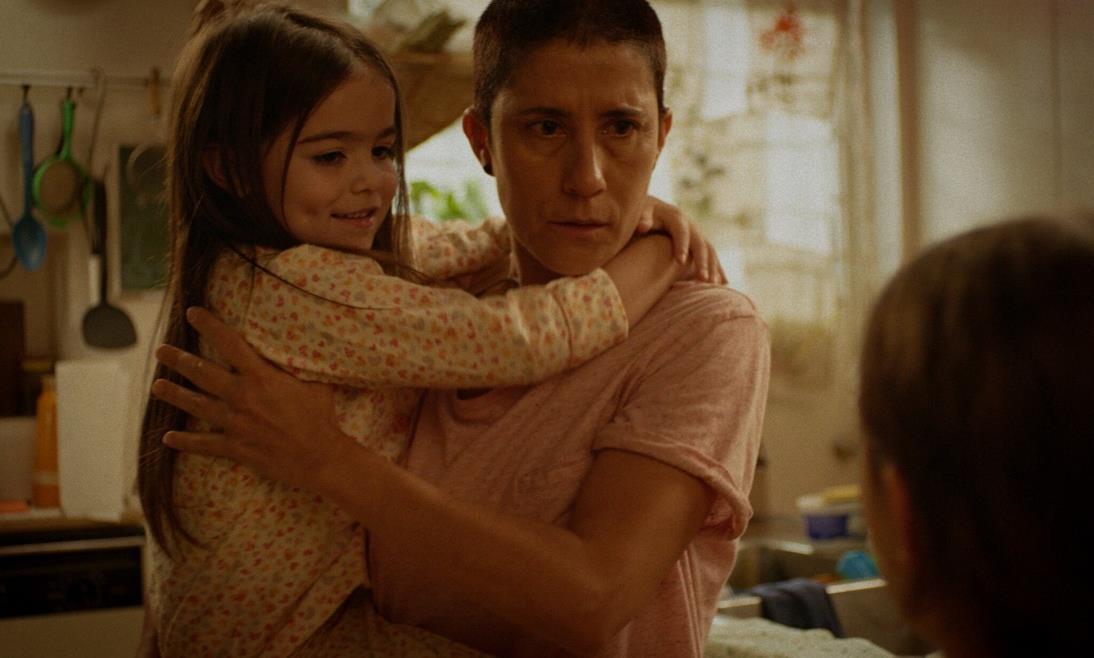
Tótem sigue una tarde en la vida de Sol una niña de 7 años. Sol pasa el día en casa de su abuelo mientras su madre trabaja; sus tíos preparan una fiesta de cumpleaños para su padre enfermo.
Pronto resulta evidente que hay algo serio en la familia tan sólo por el trato que le dan a Sol. No son solo amables y cariñosos; son untuosos y a momentos apabullantes. Pero como suele ocurrir con los adultos del mundo entero, después de un rato se olvidan cuando hay niños de una edad que no necesita atención Revision Completa

VERDICT: Colombian writerdirector Laura Mora's prizewinning road movie is a messy but big-hearted love letter to the loveless.
Stephen Dalton, December 30, 2022
(Originally reviewed Sept. 28, 2022) Pitched somewhere between gritty neorealism and lyrical magic realism, Colombian director Laura Mora’s second feature Kings of the World (Los Reyes del Mundo) is a melodramatic coming-of-age road movie rich in caustic social commentary, dreamlike visual interludes and sporadic bloody violence. Swept along by the anarchic energy of its young nonprofessional cast, mostly Medellín street kids playing semi-fictional versions of themselves, the episodic plot feels wildly undisciplined at times, especially the muddled ending. But a charitable viewing might read this as intentional, reinforcing the ever-present sense of barely controlled chaos and edgy survivalist anxiety that defines lawless young lives on the margins.
A more formally adventurous work than Mora’s feature debut Killing Jesus (2017), which landed her a Berlinale prize, Kings of the World has just won the top Golden Shell award at San Sebastian film festival, cementing the Basque screen showcase’s solid reputation for championing emerging Latin American talent. Full Review
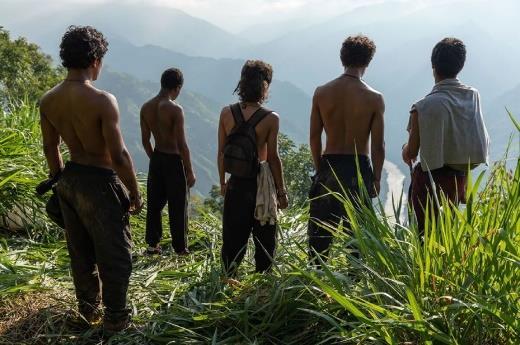
VERDICT: A bilingual “animentary” uses the voices of Mexican immigrants, both legal and undocumented, to reveal their fears and dreams through imaginative drawings that allow for greater intimacy and understanding.

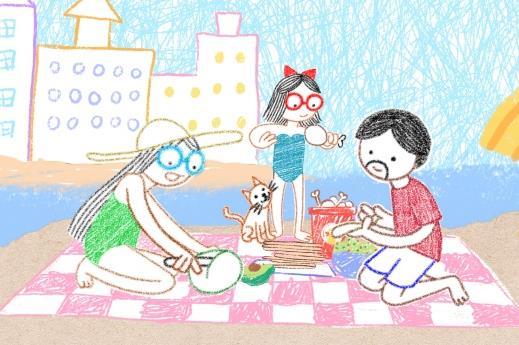
Patricia Boero, October 26, 2022 Documentary films have often branched into innovative animation techniques to tell stories that allow viewers to decipher hidden truths. Waltz with Bashir (2008) recorded the voices of Israeli soldiers who committed a massacre and Persepolis (2007) captured the childhood memories of a girl growing up in Teheran. Now Mexican filmmakers Carlos Hagerman (Those Who Remain, 2008, codirected with Juan Carlos Rulfo) and Jorge Villalobos (4 maneras de tapar un hoyo, 1996, codirected with Guillermo Rondón) tell the stories of young Mexican immigrants who suffer fears of deportation and family separation due to U.S. immigration policies. Home is Somewhere Else (Mi casa está en otra parte), which premiered at Annecy in France, has also screened at Guadalajara and now Morelia in Mexico; it should tour many more venues.
The film is divided into three segments, each story illustrated by a different animation studio in Mexico, Full Review
: Un documental bilingüe que utiliza las voces de los inmigrantes mexicanos, legales e indocumentados, para revelar sus miedos y sus sueños a través de imaginativos dibujos de animacion que permiten una mayor intimidad y comprensión.
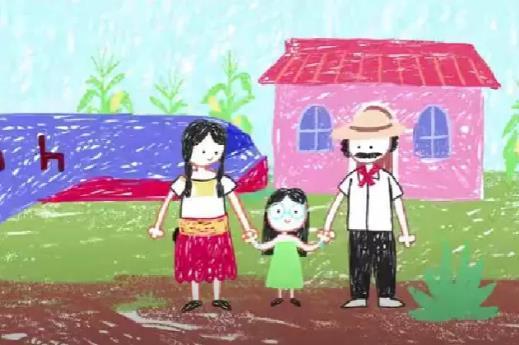
Patricia Boero, October 26, 2022 Los documentales a menudo utilizan innovadoras técnicas de animación para contar historias que permiten al espectador descifrar verdades ocultas. Vals con Bashir (2008) grabó las voces de los soldados israelíes que cometieron una masacre y Persépolis (2007) captó los recuerdos de la infancia de una niña en Teherán. Ahora, los cineastas mexicanos Carlos Hagerman (Los que se quedan, 2008, codirigida con Juan Carlos Rulfo) y Jorge Villalobos (4 maneras de tapar un hoyo, codirigida con Guillermo Rondón) cuentan las historias de jóvenes inmigrantes mexicanos que sufren el temor a la deportación y a la separación familiar debido a las políticas de inmigración de Estados Unidos. Mi casa está en otra parte se estrenó en el festival de cine de Annecy (Francia), participó en Guadalajara y ahora se proyecta en el festival de cine de Morelia en Mexico; seguramente se exhibirá en muchas otras muestras.
Revision Completa
: La historia sobre un niño de 8 años que siente una creciente desesperación de ser percibido como masculino es extraordinaria por su sensibilidad y percepción. Será un parámetro en la discusión fílmica sobre género, sexualidad e identidad.
Deborah Young, February 22, 2023 (traducido por Lucy Virgen)
Los Reyes del Mundo el segundo largometraje de la directora colombiana Laura Mora cae en algún lugar entre el neorrealismo severo y el realismo mágico lírico, es una road movie melodramática rica en comentarios sociales cáusticos, interludios visuales oníricos y esporádica violencia sangrienta.

Arrastrada por la energía anárquica de su joven elenco no profesional, en su mayoría niños de la calle de Medellín que interpretan versiones medio ficcionalizadas de sí mismos, la trama episódica se siente salvajemente indisciplinada a momentos, especialmente el farrangoso final. Pero una visión caritativa podría leer esto como intencional, reforzando la sensación siempre presente de caos apenas controlado y de ansiedad de supervivencia nerviosa que define las vidas jóvenes de los marginales sin ley.
Un trabajo más formalmente arriesgado que el primer Revision Completa
VERDICT: Carla Simón's second feature is a novelistic yet unsentimental look at a rural Catalan family.
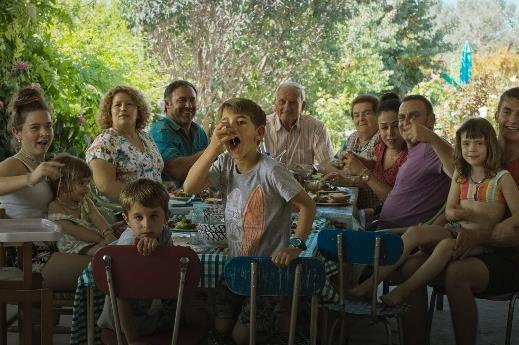

Boyd van Hoeij, December 8, 2022
Originally published Feb. 15, 2022
A Catalan family of peach farmers try to survive in the unforgiving world of today in Carla Simón’s involving contemporary drama, Alcarràs. This ode to familial unity, even as it ponders the differences between generations, is told in the loosely observant style familiar from Simón’s well-received debut Summer 1993, finding a pleasing middle ground between poetic storytelling and groundedin-reality realism. In Alcarràs too, there is a welcome absence of sentimentality and plenty of room for character details and family dynamics that’ll make most audiences nod their heads in recognition. But unlike Summer, the scope here is wider and more novelistic, as it chronicles a large family with many characters all trying to deal with desires and troubles both personal and collective. This Berlinale competition film should further consolidate the rapidly growing reputation of Simón as one of Spain’s most interesting new voices and a Catalan voice at that.
Endless fields of fruit trees and vegetable patches somewhere in Full Review
: El segundo largometraje de Carla Simón es una mirada novelesca pero poco sentimental sobre una familia rural catalana.
Boyd van Hoeij, December 8, 2022
Originally reviewed Feb. 15, 2022 (Traducción de Patricia Boero)

Una familia catalana de cultivadores de duraznos (melocotoneros) trata de sobrevivir en el implacable mundo de hoy en Alcarràs, el envolvente drama contemporáneo de Carla Simón. Esta oda a la unidad familiar, incluso cuando reflexiona sobre las diferencias entre generaciones, está contada con el estilo de observación familiar desestructurada, ya conocido y bien recibido en el debut de Simón, Verano 1993, donde encuentra un agradable término medio entre la narración poética y el realismo con los pies en la tierra. En Alcarràs también se agradece la ausencia de sentimentalismo y hay mucho espacio para dar detalles de los personajes y dinámicas familiares que harán que la mayoría de los espectadores asientan con la cabeza. Pero, a diferencia de Verano 1993, aquí el alcance es más amplio y más novelesco, ya que narra la historia de una familia numerosa con muchos personajes que tratan de enfrentarse a deseos y problemas Revision Completa

VERDICT: Joaquín del Paso's intense Mexican drama spirals out of control, just like its protagonists. Boyd van Hoeij, September 9, 2021

Mexican boys at a religious summer camp find themselves in psychological and sometimes even physical dire straits in The Hole in the Fence (El hoyo en la cerca), the second film from writer-director Joaquín del Paso. Like his debut feature, Maquinaria Panamericana (2016), this is a film that isn’t interested in individuals at all but examines disturbing group dynamics and increasing hysteria that’s meant to tell us something about the power structures of Mexican society. But since it’s hard to
relate to either the kids, who treat each other horribly, or their religious mentors, who are brutally indoctrinating them in ways meant to reinforce the country’s status quo, the result is chilling and also nearly off-putting to watch. After its twinned premieres at Venice, in the Horizons section, and at TIFF (Industry Selects), this stands nary a fighting chance of finding wider theatrical distribution except in the very upper-class burghs it derides, though festival audiences who appreciate works seemingly out of Michel Franco’s School of Disturbing Cruelty might bite.
Professor Monteros (Enrique Lascuráin) and his colleagues seem to run an Opus Dei-like religious summer camp for boys in a secluded and picturesque but apparently very dangerous nook of Mexico. Otherwise never explained “incidents” have happened beyond the walls of the camp, the young charges are told, so it is better to be careful. But anyone who’s had to mind young adolescents for longer than an hour will start to wonder whether what the men are saying is true or whether they are using these scare tactics to avoid having independent-minded kids wander off too far and perhaps get in trouble. Full Review

